Biography of Robert de Mowbray 1st Earl Northumbria -1125
In 1080 Robert de Mowbray 1st Earl Northumbria was created 1st Earl of Northumberland Feudal Creation.
On 13 Nov 1093 the Battle of Alnwick was fought at Alnwick, Northumberland [Map] between the forces of Malcolm III King Scotland (age 62) and Robert de Mowbray 1st Earl Northumbria.

Malcolm III King Scotland (age 62) was killed at The Peth Alnwick [Map]. His son Duncan II King Scotland (age 33) succeeded II King Scotland. He died a year minus day later.
Malcolm's son Edward Dunkeld was killed.
Duncan II King Scotland:
Around 1060 he was born to Malcolm III King Scotland and Ingibiorg Finnsdottir Queen Consort Scotland.
On 12 Nov 1094 Duncan II King Scotland died. His uncle Donald "The Fair White" III King Scotland succeeded III King Scotland.
Edward Dunkeld: he was born to Malcolm III King Scotland and Margaret Wessex Queen Consort Scotland. On 16 Nov 1093 Margaret Wessex Queen Consort Scotland died three days after her husband Malcolm III King Scotland and her son Edward Dunkeld were killed at the Battle of Alnwick.
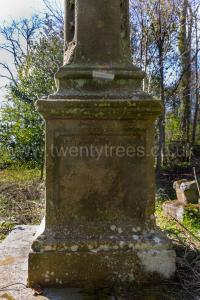
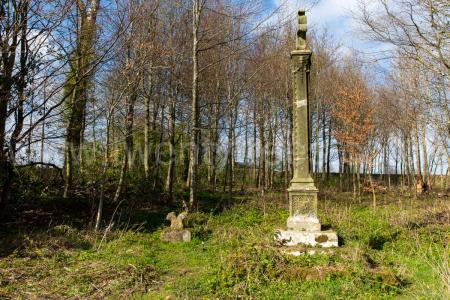
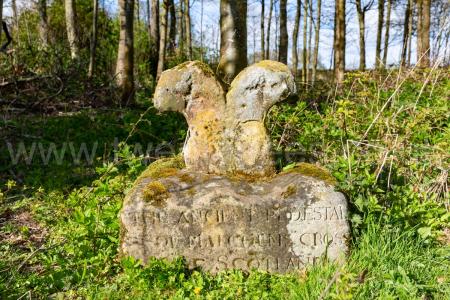
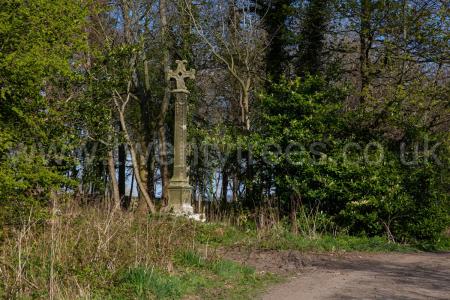
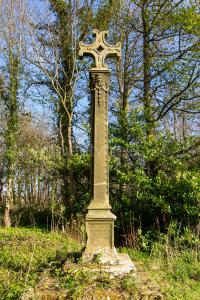
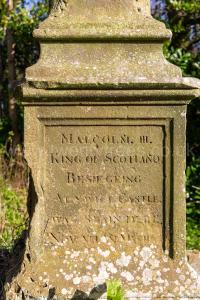
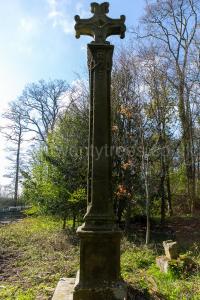
Anglo-Saxon Chronicle. 1095. The king (age 39) then went homeward; for he saw that he could do no more there this winter. When the king (age 39) came home again, he gave orders to take the Earl Robert of Northumberland, and lead him to Bamborough [Map], and put out both his eyes, unless they that were therein would give up the castle. His wife held it, and Morel who was steward, and also his relative. Through this was the castle [Map] then given up; and Morel was then in the king's (age 39) court; and through him were many both of the clergy and laity surrendered, who with their counsels had conspired against the king (age 39). The king (age 39) had before this time commanded some to be brought into prison, and afterwards had it very strictly proclaimed over all this country, "That all who held land of the king (age 39), as they wished to be considered worthy of protection, should come to court at the time appointed." And the king (age 39) commanded that the Earl Robert should be led to Windsor, and there held in the castle [Map].

Anglo-Saxon Chronicle. 1095. Hereafter at Pentecost was the king (age 39) at Windsor, and all his council with him, except the Earl of Northumberland; for the king (age 39) would neither give him hostages, nor own upon truth, that he might come and go with security. And the king (age 39) therefore ordered his army, and went against the earl to Northumberland; and soon after he came thither, he won many and nearly all the best of the earl's clan in a fortress, and put them into custody; and the castle at Tinemouth he beset until he won it, and the earl's brother therein, and all that were with him; and afterwards went to Bamborough [Map], and beset the earl therein. But when the king (age 39) saw that he could not win it, then ordered he his men to make a castle before Bamborough [Map], and called it in his speech "Malveisin"; that is in English, "Evil Neighbour". And he fortified it strongly with his men, and afterwards went southward.

Anglo-Saxon Chronicle. 1095. In this year was the King William (age 39) the first four days of Christmas at Whitsand, and after the fourth day came hither, and landed at Dover. And Henry, the king's (age 39) brother, abode in this land until Lent, and then went over sea to Normandy, with much treasure, on the king's (age 39) behalf, against their brother, Earl Robert (age 44), and frequently fought against the earl, and did him much harm, both in land and in men. And then at Easter held the king (age 39) his court in Winchester; and the Earl Robert of Northumberland would not come to court. And the king (age 39) was much stirred to anger with him for this, and sent to him, and bade him harshly, if he would be worthy of protection, that he would come to court at Pentecost.

Anglo-Saxon Chronicle. 1096. In this year held the King William (age 40) his court at Christmas in Windsor; and William Bishop of Durham died there on new-year's day; and on the octave of the Epiphany was the king (age 40) and all his councillors at Salisbury. There Geoffry Bainard challenged William of Ou, the king's (age 40) relative, maintaining that he had been in the conspiracy against the king (age 40). And he fought with him, and overcame him in single combat; and after he was overcome, the king (age 40) gave orders to put out his eyes, and afterwards to emasculate him; and his steward, William by name, who was the son of his stepmother, the king (age 40) commanded to be hanged on a gibbet. Then was also Eoda, Earl of Champagne, the king's (age 40) son-in-law, and many others, deprived of their lands; whilst some were led to London, and there killed. This year also, at Easter, there was a very great stir through all this nation and many others, on account of Urban, who was declared Pope, though he had nothing of a see at Rome. And an immense multitude went forth with their wives and children, that they might make war upon the heathens. Through this expedition were the king (age 40) and his brother, Earl Robert, reconciled; so that the king (age 40) went over sea, and purchased all Normandy of him, on condition that they should be united. And the earl afterwards departed; and with him the Earl of Flanders (age 31), and the Earl of Boulogne, and also many other men of rank123. And the Earl Robert, and they that went with him, passed the winter in Apulia; but of the people that went by Hungary many thousands miserably perished there and by the way. And many dragged themselves home rueful and hunger-bitten on the approach of winter. This was a very heavy-timed year through all England, both through the manifold tributes, and also through the very heavy-timed hunger that severely oppressed this earth in the course of the year. In this year also the principal men who held this land, frequently sent forces into Wales, and many men thereby grievously afflicted, producing no results but destruction of men and waste of money.

Note 123. Literally "head-men, or chiefs". The term is still retained with a slight variation in the north of Europe, as the "hetman" Platoff of celebrated memory.
In 1125 Robert de Mowbray 1st Earl Northumbria died. Earl of Northumberland Feudal Creation extinct.